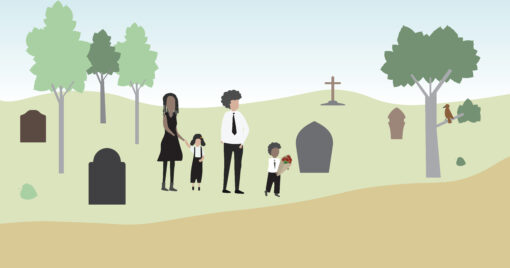
BAO adapts its proactive response to ensure sector keeps serving families during Omicron
BAO LifeLine article
The Bereavement Authority of Ontario CEO and Registrar has already introduced a handful of measures early in the new year adapting to the Omicron variant to ensure operations stay open.
“Our focus is now on ensuring we have enough staff available in the sector through this highly-transmissible wave of COVID-19,” says Carey Smith, CEO & Registrar, BAO.
Carey Smith
In the first week of the new year Smith has:
- Introduced measures on Jan. 4 aligned with new government restrictions
- Provided new sector staffing measures, as part of the Jan. 4 directive
- Authorized colleges on Jan. 6 to make their students available to work in the bereavement sector to support staffing levels during the current COVID-19 surge
- Directed crematorium operators on Jan. 7 to put several measures in place to ensure they can maintain staffing levels if/when people get Omicron
After consulting with the sector in early January, Smith directed funeral home licensees to:
- Use as few staff as possible to conduct services, replacing a previous minimum staffing requirement
- Have as little contact with families and guests as possible
- Segregate staff into teams, if possible, to prevent cross-transmission. (If one team is infected and off-line, then the other team remains available.)
- Upgrade personal protective equipment, specifically masks, to N95 or equivalent if available.
Smith directed crematorium operators to eliminate holds of bodies, increase their hours of operation, add staff, and adjust schedules to ensure their operations maintain capacity in case their staffing levels are impacted by Omicron.
“This is a temporary preventive measure to shore up staffing in the face of the highly-transmissible Omicron variant. We want our licensees to have backup when and if they need it as Omicron spreads in every part of our population, including the bereavement sector,” says Smith.
Humber College and Collège Boréal received the authorization from Smith on Jan. 6 to make their students available to work in the bereavement sector prior to the completion of their studies. Students will still be required to complete their full program of studies to obtain their graduation diplomas and be eligible for licensure in the bereavement sector.
“I issued the same authorization in 2020 at the start of the pandemic, but there is no internship included in this one. This new authorization is part of our strategy during the Omicron wave to make sure the public continues to be well served by our sector as the virus threatens to take staff temporarily offline,” Smith says.
“This is very much in keeping with other preventive steps the BAO has taken such as our Expedited Death Response for hospitals and long-term care facilities in 2020 and 2021.”
He adds, “These proactive steps only work because our professionals across the sector implement them. And I thank them for that.”
The public is welcome to read the BAO’s LifeLine newsletter to our licensees.


